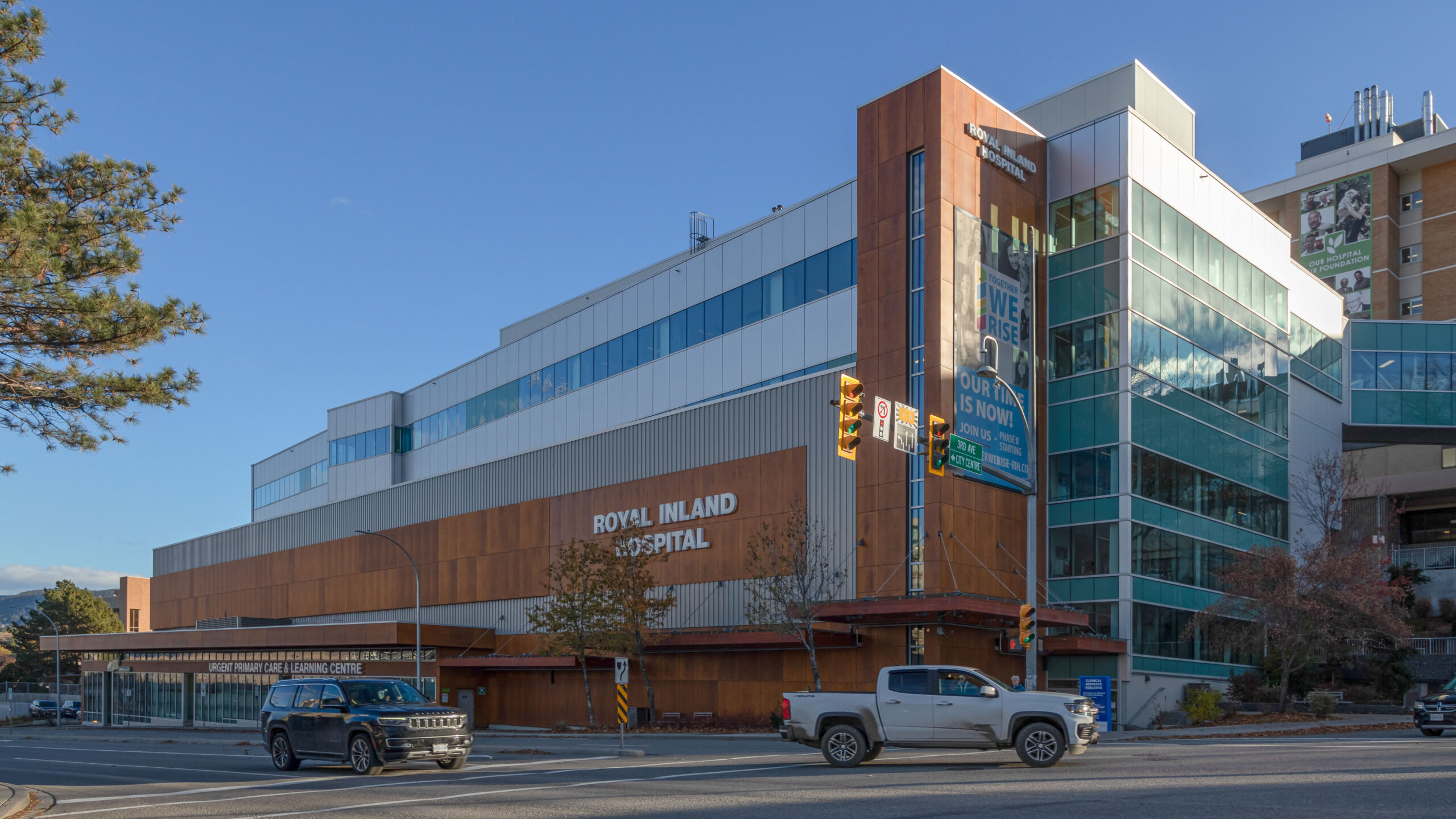Kamloops is facing a growing crisis after several obstetricians and gynecologists (OBGYNs) at Royal Inland Hospital (RIH) resigned earlier this fall, leaving patients and professionals worried about the future of maternity care. The resignations have sent shockwaves beyond the hospital walls, affecting families, local businesses, and the broader Kamloops economy.
“So we have been hearing a lot from our members over the last few months around the challenges that they have been trying to recruit,” said Acacia Pangilinan, Executive Director of the Kamloops & District Chamber of Commerce. “And really, at the heart of those challenges are social structures, so things like housing, healthcare and childcare. And I think the recent loss of OBGYNs at Royal Inland Hospital is just another erosion of healthcare services within our community that are really making Kamloops appear not as desirable as other places.”
While the Chamber hears concern from employers, community organizers like Alix Dolson, co-founder of Maternity Matters Kamloops, say the situation has reached a “crisis point” for expectant families.
“Yeah, so we’re a very new organization, very much a grassroots organization,” Dolson said. “It started because, a few weeks ago, someone that works in the birth sector reached out to me and said, you know, we’ve reached a crisis point in Kamloops in terms of maternity care, and we need to do something. And we’re not able to do that because we, you know, we work within the sector and some of us are employees of Interior Health, and so we’re limited in how we can respond, and we’re looking for the community to sort of come to bat for us and to speak out on our behalf.”
For Pangilinan, the crisis highlights how access to healthcare directly impacts economic vitality. “When you are looking to recruit professionals, it’s a really big market out there,” Pangilian said. “We are competing against Kelowna, Vancouver, Calgary and Edmonton when there is a lack of integral services that can affect someone’s decision to move here. We’re hearing a lot about that.”
Dolson says the consequences of that lack of service are already visible. “We have lost capacity in terms of maternity care, we have lost significant capacity,” Dolson said. “People have very few options in terms of accessing prenatal care, and now we’re at a crisis point where we could be entirely without maternity care.”
Both women agree that the situation is unsustainable – one threatening the health of Kamloops residents, the other the long-term health of the city’s economy.
“If we don’t have the necessary services, people will leave and go to communities that offer [them]. It would affect our ability to retain businesses or attract businesses … our healthcare challenges will affect the overall economy because if people leave Kamloops, then they are taking their spending elsewhere,” Pangilinan said.
For Dolson, the stakes are high. “There are people for whom there is no option for prenatal care, and it’s incredibly dangerous because entirely preventable risks are going to go undiagnosed because people don’t have good, safe maternity care,” Dolson said. “There’s a good chance that they are going to be turned away and sent to another city to give birth, which is absolutely the last thing that an expecting parent should have to do in early labor. It’s incredibly high risk. It’s incredibly stressful and it’s unacceptable.”
Dolson, a mother of two, fears the consequences if nothing changes. “We are going to see more of that,” Dolson said. “Women in early labor who are told to drive to Kelowna and end up giving birth on the side of the road. We could see maternal deaths on the road.”
For Pangilinan, the Chamber’s unusual step into healthcare advocacy reflects how intertwined these issues have become. “Traditionally the Chamber wouldn’t necessarily advocate for things like healthcare,” Pangilinan said, “but because it has a direct impact on our economy we really felt like it was very important to use our voice to share that perspective about the effects that this has on the business community and elevate those who have been bringing forward solutions for months but haven’t really had success with Interior Health or the regional government.”
Dolson, meanwhile, is urging residents to act. “I think I would just encourage people to use their voice,” Dolson said. “There is power in that critical mass. The more that our elected officials, our decision makers, hear from the community, the more they will understand that they must address this immediately. We will continue to advocate, we will continue to rally until they address the issue, until they solve this problem.”
As Pangilinan put it, “the health of our residents affects the health of our economy.” For Dolson, it’s even simpler: “Maternity care has been crumbling for years … and now we’re at a critical breaking point.”

